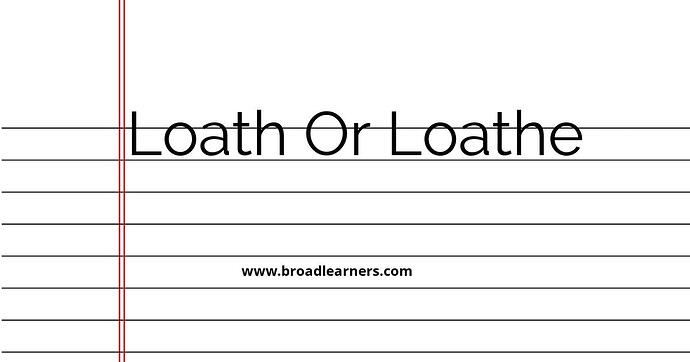'Loath' and 'loathe' are commonly confused words in English grammar. Understanding the difference between 'loath' and 'loathe' is important to use them correctly in written and spoken English.
'Loath' is an adjective that means unwilling or reluctant. It describes a feeling of strong dislike or aversion towards something or someone.
'Loathe' is a verb that means to have a strong dislike or hatred towards something or someone. It expresses a deep and intense aversion or disgust.
Let's take a closer look at the meanings and usage of 'loath' and 'loathe'.
| 'Loath' | 'Loathe' |
|---|---|
| The word 'loath' is an adjective that describes a feeling of strong dislike or reluctance. | The word 'loathe' is a verb that expresses intense dislike or hatred. |
|
|
To remember the difference between 'loath' and 'loathe', it can be helpful to remember that 'loath' is an adjective describing a feeling, while 'loathe' is a verb expressing intense dislike or hatred.
Here are some examples of correct usage:
- I am loath to wake up early in the morning.
- She loathes doing household chores.
- He is loath to accept help from others.
- They all loathed the idea of going on a camping trip.
Remembering the correct usage of 'loath' and 'loathe' will improve your grammar and communication skills.
